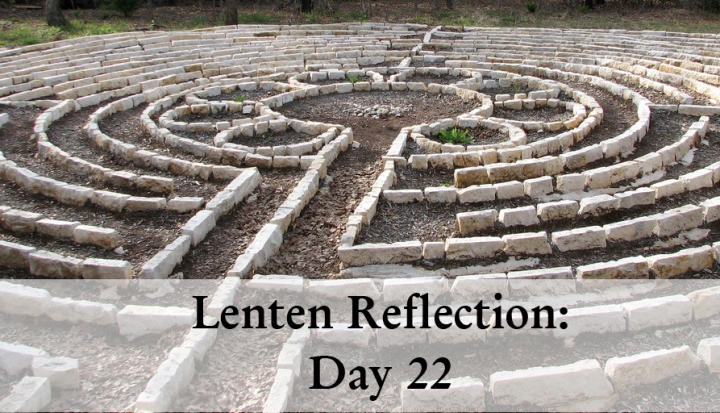Looking for a daily devotion for Lent? Every day (minus Sundays), U.S. Catholic will bring you words of wisdom and questions for reflection from different spiritual writers, from C.S. Lewis to Henri Nouwen. Click here to get these messages of hope delivered to your inbox daily!
M. Basil Pennington, O.C.S.O.: A clash of wills
How often have we prayed: “Our Father, who art in heaven . . . thy will be done. . . .” We have watched the ultimate expression of our Lord’s own struggle as he sweat blood in Gethsemane’s garden and in his anguish cried out: “Father, if it be possible, let this chalice pass from me, but not my will but yours be done.”
We know the anguish ourselves, in varying degrees: the sudden death of a loved one, a crippling accident, an unplanned pregnancy. It is not what we want. We have heard—and struggle to believe—that for those who love God all things work together unto good. But deep down in us something cries: “No! It is not what I want. My will be done.” We usually do not have the audacity to say it right out to the Lord. But we sure do not like what he seems to be saying or doing or allowing to be done. And we do not want to say: “Thy will be done.”
If only we could realize how much we are loved. Then we could fairly easily believe that for those who love God all things work together unto good. If only we had the humility to realize that the all-knowing Father of infinite love does always know what is best for us. God does not want bad things to happen, but God has given us freedom. God respects the freedom he has given us. Thus God does allow bad things to happen to good people. At the same time God knows that the power of divine love is far greater than any evil. The all-encompassing compassion of divine mercy is infinitely greater than any sin.
At times we do really need to crawl to Gethsemane, to see, to hear, to enter into and let the Lord enter into our own struggle: “If possible, let this pass, but not my will but yours be done.” Yes, many times in our life we glibly pray: “Thy will be done” But that deep transformation of our all-too-human spirit needs those moments or hours or days of anguish before our original-sin “My will be done” is replaced with the communion of self-giving love that is expressed so succinctly: “Thy will be done.”
Reflection questions
1. What do you have a hard time leaving to God? Why do you think your faith falls short—is it a problem of humility? Lack of trust? Or something else entirely?
2. In a recent interview with U.S. Catholic, theologian Robin Ryan suggests that where God is in pain and suffering is a better question to ask than why God lets bad things happen to good people. Where, then, is God in your own pain and anguish?
3. Does trusting God’s will ever get confused with passiveness? Or is God calling us not only to trust, but to work towards bring about the divine plan here on earth? How can we differentiate our own egos from God calling us to action?
Pennington is a Trappist monk and a writer and lecturer on prayer. A former abbot, he now resides at St. Joseph’s Abbey in Spencer, Massachusetts.









